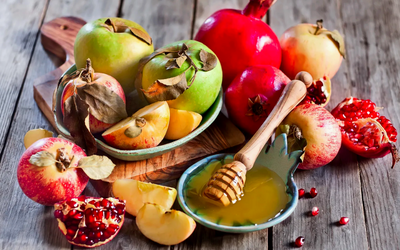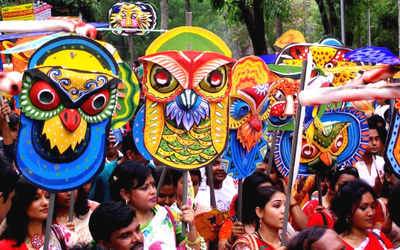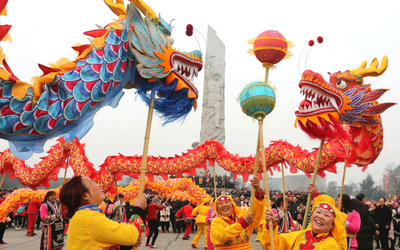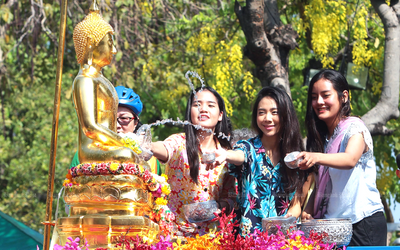New Year Celebration Around The World

For many of us New Year celebration is associated with beautiful winter scenes, fireworks, and wishlists. However, it doesn't relate to many countries. Let’s find out what the start of the New Year means to other cultures.
Rosh Hashanah (Israel)
Rosh Hashanah means the “Head of the Year”. The holiday falls on the seventh month on the Hebrew calendar. Celebrating the completion of another year is followed by some beautiful traditions like sounding the shofar in synagogues and sharing foods (dates, beets, and pomegranates). Another common treat for this holiday is apples in honey. According to the beliefs of the Ancient Jews, apples have a healing quality, and honey means the upcoming year is going to be sweet.

Pahela Baishakh (India)
Bengali people follow their own calendar of the same name. The reason why the year starts in April. The celebration is all about having feast days also due to the beginning of the harvest season.
The traditional greeting for Bengali New Year is “Shubho Noboborsho” (“Happy New Year”).

Spring Festival (China)
In China New Year means welcoming springtime. The date of the celebration depends on the Lunar calendar. Usually, it is either at the end of January or February. The most important part of its celebration is to get together with families and share lots of food. Many young Chinese people leave their hometowns to work in big cities. That’s why a week before the public holiday the train stations and airports are overcrowded around the whole country.

Songkran Festival (Thailand)
The New Year in Thailand is actually Water Festival. During the Festival (13-15 April) people give food to monks, build sand pagodas on the temple ground, and exchange New Year’s greetings during friendly water fights.

Get ready for Christmas with the most popular dishes listed in this article.
Оставить комментарий
Для комментирования необходимо войти через ![]() Вконтакте
Вконтакте
